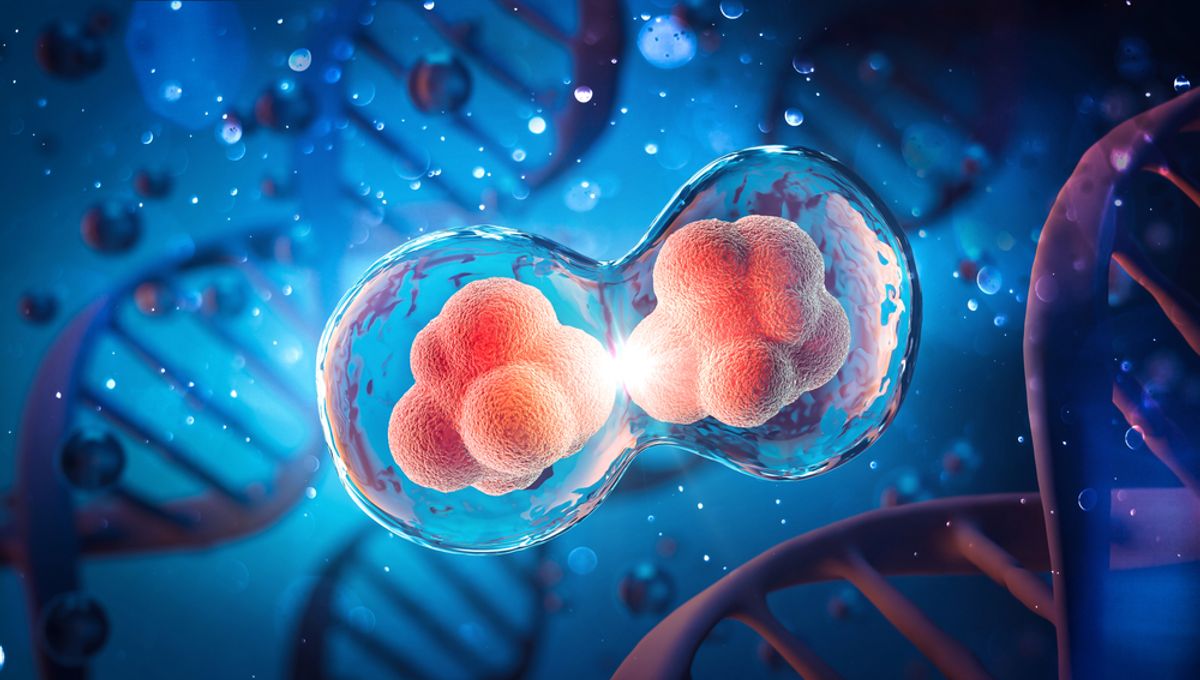
Stem cells from male mice have been successfully converted into cells containing two X chromosomes. These cells were then differentiated into eggs and fertilized with sperm, resulting in the births of seven healthy baby mice. It’s a landmark finding, and it was made possible thanks to an issue that’s long been a headache for scientists attempting to culture stem cells.
Stem cell research has been responsible for some of the biggest biological breakthroughs in recent years, offering hope for the treatment of disease, tissue regeneration, and maybe even computers based on human brains. However, culturing stem cells for the lengths of time needed to perform such incredible experiments comes with its share of potential pitfalls.
After a period of time, cultured stem cells can start to pick up genetic errors. An example of this is aneuploidy, which arises when chromosomes are incorrectly deleted or duplicated. Aneuploidy can affect any of the chromosomes inside our cells; Down syndrome is famously caused by an extra copy of chromosome 21. In this case, we’re interested in aneuploidy that specifically affects the sex chromosomes.
In humans – and, importantly for this story, in mice too – biological sex is determined by two sex chromosomes. Biologically female cells have two copies of the X chromosome; biologically male cells have one X chromosome and one Y chromosome.
In the new study, the scientists used XY stem cells obtained from male mice, which were converted into pluripotent stem cells and cultured. As the cells naturally began to pick up errors, a small subset (about 6 percent) lost their Y chromosomes. As the team continued to propagate these so-called “XO” cells, they began to see duplication of the remaining X chromosome, which they were also able to help on its way with the use of a drug called reversine.
Eventually, the authors found themselves with a population of XX cells. In other words, from the starting culture of biologically male cells, they now had a small culture of female cells. Since stem cells have the potential to differentiate into many different cell types, it was possible to induce the XX cells down a path toward becoming functional eggs, which could then be fertilized.
Out of 630 fertilized embryos that the authors implanted into a mouse uterus, around 1 percent – seven in total – grew into healthy mouse pups.
That might not sound like a lot, and this low efficiency is highlighted as one of several limitations of the protocol in an accompanying News and Views article by Drs Jonathan Bayerl and Diana Laird of the University of California, San Francisco, who did not take part in the research.
However, as a jumping-off point for further research, it’s certainly a remarkable result. One day, this kind of technology could provide options for women with infertility due to a condition called Turner syndrome, which results in them having only one copy of the X chromosome.
And speaking to New Scientist, senior author Dr Katsuhiko Hayashi hinted that this work could be a stepping-stone towards same-sex male couples being able to have biological children of their own: “What I can say is only about the technological side. I think in theory it is possible.”
It’s not yet known if this technique would work in human stem cells, and lots more research is needed. If anything, as Bayerl and Laird point out, these new findings show us how much we still don’t know about this burgeoning field of study: “[We] have much to learn before we use cultured stem cells to make human eggs in a dish.”
The study and accompanying News and Views article are both published in Nature.
Source Link: Baby Mice Born From Two Fathers Thanks To Egg Cells Derived From Males